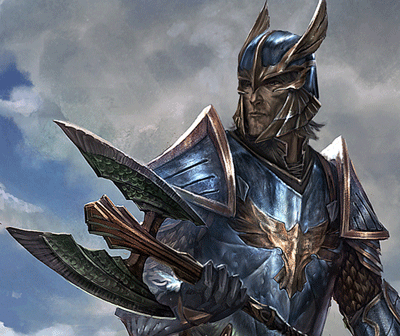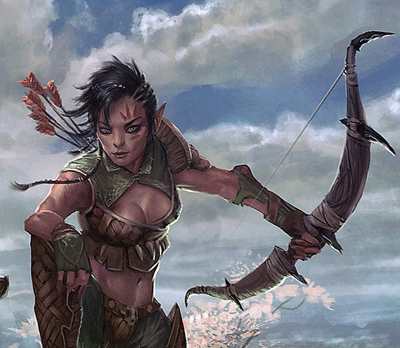Free to Play vs. Pay to Play may be the most debated topic since the announcement of The Elder Scrolls Online back in May by ZeniMax Online Studios. Both sides of the argument have articulated their opinions as to why their payment model is better, the free-to-play team has mentioned that it would be cheaper allowing more people to play and the pay to play team likes the idea of more frequent content updates. It’s hard to tell how a game will play out in regards to its payment model, especially when The Elder Scrolls Online hasn’t even launched a beta event yet but we do have some reference points.
 Although ESO is far from its release date in 2013, we can take a look at previous games like WoW, EQ2, Vanguard and Guild Wars 1 & 2 that have implemented either the Free-to-Play or Pay-to-Play models and compare. A couple of the games listed above started out using the P2P model and moved onto the F2P model shortly after launch – we’ll see why that is and if it was the right move.
Although ESO is far from its release date in 2013, we can take a look at previous games like WoW, EQ2, Vanguard and Guild Wars 1 & 2 that have implemented either the Free-to-Play or Pay-to-Play models and compare. A couple of the games listed above started out using the P2P model and moved onto the F2P model shortly after launch – we’ll see why that is and if it was the right move.
Pay-to-Play has been the traditional payment model for MMOs since the very beginning, many MMO veterans will argue that it’s simply the best. The P2P model charges players a monthly fee, anywhere from $5 – $20, to play the game without limits giving each player equal opportunity to explore, discover new items and become most powerful player in the game. The monthly fee is the great equalizer not allowing anyone to “Pay to Win” as it’s known by MMO players. However, this monthly fee isn’t always worth it for some. As times change more individuals have less time to play the games in their collection making it difficult to justify the monthly fee. With less free time players aren’t able to raid dungeons for hours or perfect their PvP tactics preventing them from obtaining the top level gear and weapons so why not allows those players to pay for their items?
This is the reasoning behind the Free-to-Play payment model. Often times with a F2P model players get a chance to explore a large portion of the game, if they wish to access more they have to pay additional one time fees. With this model players also have the chance to pay for gear, spells, weapons and other items if they choose. The F2P is also sometimes used as the last ditch effort to bring in followers after a game is deemed unsuccessful by the publishers.
 Vanguard is an excellent example of this. When Sigil Games began the development of Vanguard: Saga of Heroes they had big dreams – they developed an entirely seamless world much larger than any of the other major titles at the time. The world was beautiful, filled with wonder, mystery and lots of open land. Unfortunately there were a few issues that eventually turned away many of its fan base. The game sat almost empty for years using the P2P model, eventually SOE bought the rights to the title and implemented their own version of F2P. This news reinvigorated the community and thousands of new players became interested as well giving Vanguard a second chance at success.
Vanguard is an excellent example of this. When Sigil Games began the development of Vanguard: Saga of Heroes they had big dreams – they developed an entirely seamless world much larger than any of the other major titles at the time. The world was beautiful, filled with wonder, mystery and lots of open land. Unfortunately there were a few issues that eventually turned away many of its fan base. The game sat almost empty for years using the P2P model, eventually SOE bought the rights to the title and implemented their own version of F2P. This news reinvigorated the community and thousands of new players became interested as well giving Vanguard a second chance at success.
Was this move a good idea? It depends on how you look at it; moving to the F2P model allowed SOE to charge for the “extras” which are usually highly desired features. If you’re a player returning to Vanguard after some time off you may notice its free model isn’t as free as one might think. In order to keep up with the players that have access to spare cash you’ll need to purchase potions and items through the SC Marketplace as well, paying for the gold membership is no longer enough to compete. This is a common trick built into the free models, many of the players for F2P models either miss this or have plenty of extra cash lying around.
So is the P2P model better? That depends, but its often times cheaper to pay a standard monthly fee than to pay for access to all of the game features in a F2P title, ironic isn’t it? When Vanguard was still P2P Sigil released regular updates, some almost large enough to be considered expansions themselves. World of Warcraft a P2P title, continues to do this on a regular basis, releasing new content like major dungeons and parts of zones at no additional cost. If you want additional dungeons or zones in a Guild Wars title you’ll need to buy the expansions even though these games are already limited when compared to other MMOs.
 With the recent release of Guild Wars 2 many players have become fond of their unique Buy to Play model and feel that The Elder Scrolls Online should adopt a similar model. But before you decide on which model would be best for The Elder Scrolls Online take a look at what you’re potentially getting with each model. With the P2P model you’re guaranteed a monthly fee to play, but with that fee comes regular updates, additional content and of course full access to the game. With a F2P model you can play the game completely free of charge but have to deal with pop-up advertisements, limited abilities, an unfair playing field and very few updates which ends up forcing you to pay to compete or leave the game due to frustration. The third option is the GW B2P model, although it works for titles like GW1&2, it won’t work for the larger games. GW1&2 are content limited titles that require you to follow a linear path throughout the game and wait long periods of time before new content is released, is this really want you want from an Elder Scrolls title?
With the recent release of Guild Wars 2 many players have become fond of their unique Buy to Play model and feel that The Elder Scrolls Online should adopt a similar model. But before you decide on which model would be best for The Elder Scrolls Online take a look at what you’re potentially getting with each model. With the P2P model you’re guaranteed a monthly fee to play, but with that fee comes regular updates, additional content and of course full access to the game. With a F2P model you can play the game completely free of charge but have to deal with pop-up advertisements, limited abilities, an unfair playing field and very few updates which ends up forcing you to pay to compete or leave the game due to frustration. The third option is the GW B2P model, although it works for titles like GW1&2, it won’t work for the larger games. GW1&2 are content limited titles that require you to follow a linear path throughout the game and wait long periods of time before new content is released, is this really want you want from an Elder Scrolls title?



